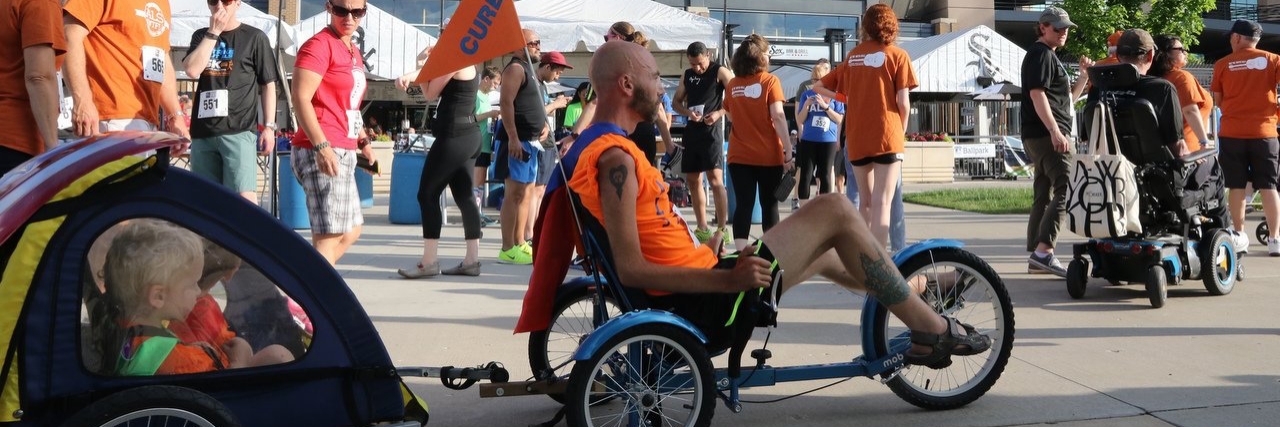In 2013, at the age of 30, I was given a terrifying diagnosis: ALS. I wondered, how is this possible? ALS is a disease that affects older people, not people like me in the prime of their lives.
What I learned after that initial diagnosis is ALS knows no bounds. It can affect any age, gender or race. I learned that in the big picture not a lot is understood about ALS, but what is known is that the disease would cause me to slowly lose the use of my limbs and my ability to speak. I learned at some point, I’d no longer be able to pick up my son or hug my wife, and instead, I would need around-the-clock care. And worse, I learned ALS is fatal and the “life expectancy of a person with ALS averages about two to five years from the time of diagnosis,” according to the ALS Association.
The initial shock was overwhelming, but in the three years since being diagnosed, I’ve learned about resilience, strength and love. I often rely on my training as a firefighter and paramedic, which prepared me to adapt and overcome any obstacle. This mindset helps me every day. Faced with the loss of a physical function, such as running, I tap into my emotional strength and figure out how to cope with these changes.
My wonderful wife, Holly, and I have three young children, and she is often busy caring for them, so I find ways to adapt to the challenges of ALS on my own. Being able to figure out solutions to daily challenges independently is very important to me.
I am lucky to have a large support network of family, friends and organizations. The Les Turner ALS Foundation, the leading provider of care to people with ALS in the Chicagoland area, has been a huge help.
A few months after being diagnosed, I recruited a bunch of my firefighter buddies and family to run in the foundation’s annual Strike Out ALS 5K race. At that point, I was in great shape and finished the race in about 23 minutes. The next year, I used a stroller to push my oldest son and finished the race at a jogging pace.
In the summer of 2015, everyone, especially the doctors, discouraged me from participating in the race. But I wanted to prove that mentally, people living with ALS are strong, despite being physically weakened by the disease.
My oldest son told me something simple that I will always remember: “Dad, you can cross that finish line.” So, along with friends and relatives, I lined up at the start line of the Strike Out ALS 5K, as reported on The Mighty. I walked approximately half of the course, and, with my son’s words in my mind, I crossed the finish line in just over two hours. I aimed for the finish line, relying on determination and the desire to show my son and others that I had the fight in me. I would not let ALS force me to quit.
At this year’s event, as my physical strength has continued to decline, I decided it would be best to ride my special recumbent bike. It’s easy to use and fun to ride, and with my two boys in the attached trailer, I felt like I had a support team riding the course with me. Our team lined up wearing shirts that said, “A Limit Set by Me,” which is the way I approach every day.
The Strike Out ALS 5K raises awareness of ALS and funds for critical programs. The first year I participated in the event, only a few runners on my team understood what ALS is. Most people had never even heard of it. The event opens people’s eyes to the dramatic impact ALS has on individuals and their families.
We have to keep pushing forward one step at a time toward the finish line. Only we can set the limit on what we can do. When we work together, we can find a cure for this disease.
For more information about ALS, visit www.lesturnerals.org.

